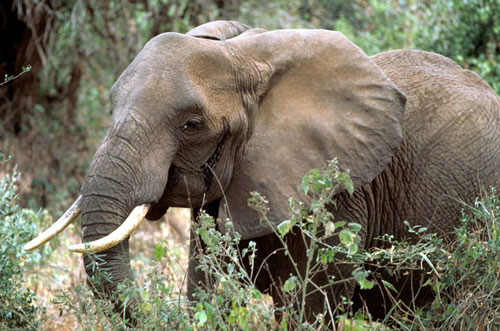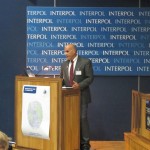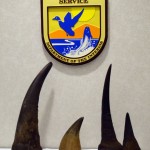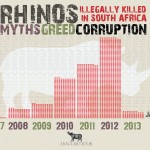A three-month long INTERPOL operation spanning Eastern, Southern and Western Africa has resulted in more than 200 arrests and the confiscation of nearly two tonnes of elephant ivory and more than 20 kilos of rhino horn.
In addition to ivory and rhino horn, Operation Worthy recovered lion, leopard and cheetah pelts, crocodile and python skins, live tropical birds, turtles, and other protected species which were destined to be smuggled around the globe. Law enforcement officers also recovered AK-47s, G3s and M16s.
Interventions were conducted at markets, ports, shops, border crossings and during roadside checks by more than 320 officers from a range of agencies including police, customs, environmental protection agencies, veterinary services, airport security, ministries of tourism and national prosecuting authorities.
Manager of INTERPOL’s Environmental Crime Programme, David Higgins, explained that Operation Worthy targeted global crime syndicates which, besides wildlife crime, are responsible for murders and engaged in corruption and money laundering.
This has been to date the most wide-ranging operation coordinated by INTERPOL against the illegal ivory trade, not just in terms of seizures and arrests, but also in targeting the criminal organizations making millions of dollars through the killing and destruction of wildlife and their habitat, and associated crimes such as murder, corruption and money laundering.
The intelligence gathered during Operation Worthy will enable us to identify the links between the poachers and the global networks driving and facilitating the crime. By identifying their international trafficking routes, arresting those involved at higher levels, and suppressing the crime at its source, in transit, and at its destination we are making a real contribution to the conservation of the world’s environment and biodiversity.
Operation Worthy participants included Ethiopia, Botswana, Ghana, Guinea Conakry, Kenya, Liberia, Mozambique, Namibia, Nigeria, Rwanda, South Africa, Swaziland, Zambia, Zimbabwe.
It was revealed in May at the U.S. Senate Committee on Foreign Relations Hearing that illegal wildlife trafficking is estimated at about $10 billion dollars annually, and is used as a funding source for terrorists.
Demand for ivory comes overwhelmingly from China, where a failure to control its domestic ivory trade has made it easy for illegal ivory to be laundered, resulting in the massacre of thousands of elephants every year.
Source: INTERPOL
Image by Gary M. Stolz/U.S. Fish and Wildlife Service via Wikimedia Commons





